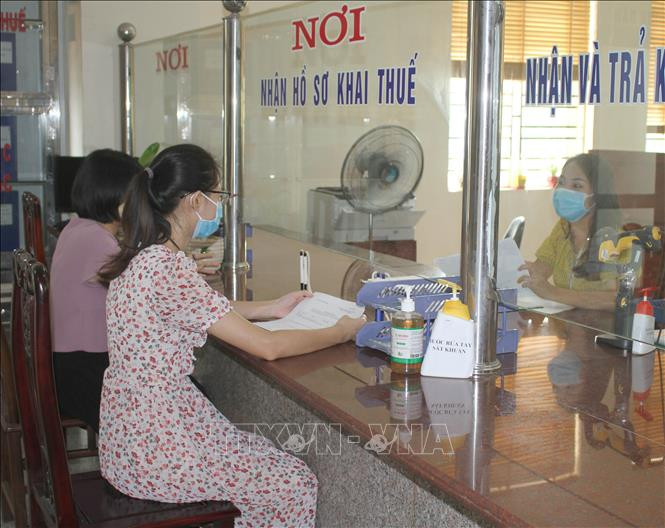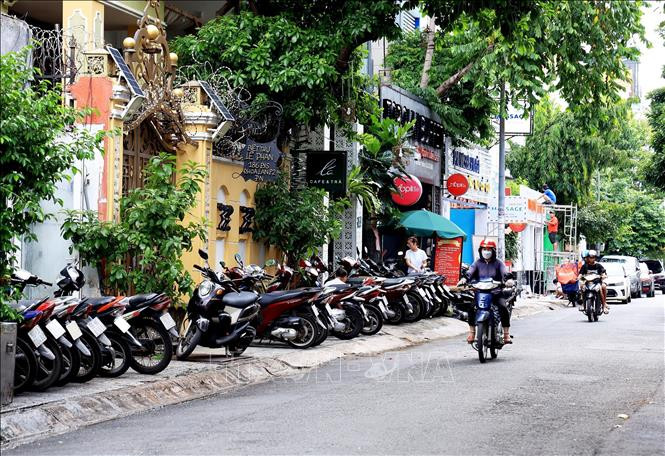Some economic policies such as: Applying additional corporate income tax according to regulations against global tax base erosion; amending regulations on declaration, collection, payment of fees, charges... will officially take effect from January 2024.

Apply additional corporate income tax under the global anti-base erosion rule
On November 29, 2023, at the 6th Session, the National Assembly passed Resolution No. 107/2023/QH15 on applying additional corporate income tax according to regulations against global tax base erosion.
Resolution No. 107/2023/QH15 resolves that a constituent unit of a multinational corporation has revenue in the consolidated financial statements of the ultimate parent company for at least 02 years in the 04 consecutive years preceding the fiscal year equivalent to 750 million euros (EUR) or more, except for the following cases: Government organizations; International organizations; Non-profit organizations; Pension funds; Investment funds as the ultimate parent company; Real estate investment organizations as the ultimate parent company; Organizations with at least 85% of the value of assets owned directly or indirectly through organizations specified from points a to e of this clause.
Resolution No. 107/2023/QH15 takes effect from January 1, 2024.
The Government amends regulations on declaration, collection and payment of fees and charges.
On November 28, 2023, the Government issued Decree 82/2023/ND-CP amending and supplementing a number of articles of Decree No. 120/2016/ND-CP of the Government detailing and guiding the implementation of a number of articles of the Law on Fees and Charges.
In which, amend and supplement the name of Article and Clauses 1, 2 and 3 of Article 3 as follows:
Article 3. Declaration, collection, payment of fees, charges and settlement of fees.
Fee and charge payers shall declare and pay fees and charges monthly, quarterly, annually or upon each occurrence; pay fees and charges to the collection organization or the State Treasury in the following forms: Direct payment in cash or through credit institutions, service organizations and other forms as prescribed by law.
Based on the nature and characteristics of each fee and charge, the competent state agency shall specify the form of payment, declaration period, and payment of fees and charges accordingly.
Fee and charge collection organizations shall declare and pay collected fees and charges as follows:
Periodically every day, week or month, the fee collection organization must deposit the collected fee amount into the fee account awaiting payment to the budget at the State Treasury; the fee collection organization must deposit the collected fee amount into the fee account awaiting payment to the budget or pay the fee into the state budget collection account at the State Treasury.
Based on the amount of fees collected, whether it is large or small, the distance from the fee collection location to the State Treasury, the competent state agency shall periodically prescribe the day, week or month, the fee collection organization must deposit the amount of fees collected during the period into the fee account awaiting payment to the budget, the fee collection organization must deposit the amount of fees collected during the period into the fee account awaiting payment to the budget or the state budget collection account.
Fee collection organizations shall declare and pay collected fees to the state budget monthly, make annual settlements, and fee collection organizations shall declare and pay collected fees to the state budget monthly in accordance with the provisions of the Law on Tax Administration, Decree No. 126/2020/ND-CP dated October 19, 2020 of the Government detailing a number of articles of the Law on Tax Administration, Decree No. 91/2022/ND-CP dated October 30, 2022 of the Government amending and supplementing a number of articles of Decree No. 126/2020/ND-CP dated October 19, 2020 of the Government detailing a number of articles of the Law on Tax Administration.
Organizations that collect customs fees, fees for goods, luggage, and transit vehicles, and Vietnamese representative agencies abroad collect fees and charges to declare, collect, and pay fees and charges according to the provisions of Decree No. 126/2020/ND-CP.
Fee and charge collection organizations shall prepare and issue fee and charge collection documents in accordance with the provisions of Decree No. 123/2020/ND-CP dated October 19, 2020 of the Government regulating invoices and documents, and Decree No. 11/2020/ND-CP dated January 20, 2020 of the Government regulating administrative procedures in the field of State Treasury.
Decree 82/2023/ND-CP takes effect from January 12, 2024.
New regulations on private issuance of government bonds
The Government issued Decree No. 83/2023/ND-CP amending and supplementing a number of articles of Decree No. 95/2018/ND-CP dated June 30, 2018 on issuance, registration, depository, listing and trading of Government debt instruments on the stock market.
In which, Decree No. 83/2023/ND-CP amends and supplements Article 17 on Private issuance of Government bonds as follows:
Private issuance is a method of directly selling government bonds to each buyer or selecting a commercial bank or foreign bank branch as a distribution and payment agent for government bonds (distribution agent) to the buyer.
The State Treasury develops a plan to issue government bonds in a private manner and reports to the Ministry of Finance for approval. The private issuance plan includes the following basic contents: Bond purchasers; Expected issuance volume; Bond term; Expected interest rate; Expected issuance time; Expected form of private issuance (State Treasury issues directly or selects a distribution agent).
The Ministry of Finance approved the plan to issue individual government bonds according to the above provisions. In addition, Decree No. 83/2023/ND-CP also amends and supplements Clauses 2 and 3, Article 22 on foreign currency bonds.
Decree No. 83/2023/ND-CP takes effect from January 15, 2024.
Fees for using roads and sidewalks in Ho Chi Minh City

On September 19, 2023, the 10th term Ho Chi Minh City People's Council passed Resolution 15/2023/NQ-HDND on promulgating the fee for temporary use of roads and sidewalks in the area, with a fee ranging from 20,000 - 350,000 VND/m2/month.
Accordingly, the fee for parking activities ranges from 50,000 - 350,000/m2/month and the fee for other activities ranges from 20,000 - 100,000 VND/m2/month depending on the area.
Regarding the calculation of rental period, if the number of days using the road or sidewalk is less than 15 days in a month, it is counted as half a month; from 15 days or more in a month, it is counted as 1 month.
The fee is applied based on the average land price in 5 areas (each area will have a central route and the remaining routes).
Area 1 includes District 1, District 3, District 4, District 5, District 10, Phu Nhuan, Area A - New Urban Area South of the city, Thu Thiem New Urban Area.
Area 2 includes District 2 (now part of Thu Duc city, except Thu Thiem New Urban Area), District 6, District 7 (except Area A - New Urban Area South of the city), District 11, Binh Thanh, Tan Binh, Binh Tan.
Area 3 includes District 8, District 9 (now Thu Duc City), District 12, Thu Duc District (now Thu Duc City), Tan Phu, Go Vap.
Area 4 includes Binh Chanh, Hoc Mon, Nha Be, and Cu Chi districts. Area 5 includes Can Gio district.
Fee payers are organizations and individuals who are allowed to temporarily use the roadway to organize cultural activities and car parking points serving cultural activities; as a transfer point for domestic waste of urban environmental sanitation enterprises; and to arrange parking points for motorbikes, motorbikes, and bicycles with a fee for parking services.
All collected fees are paid into the budget and used for the purpose of toll collection and management, maintenance and exploitation of roads and sidewalks.
The Resolution takes effect from January 1, 2024.
According to Tin Tuc newspaper